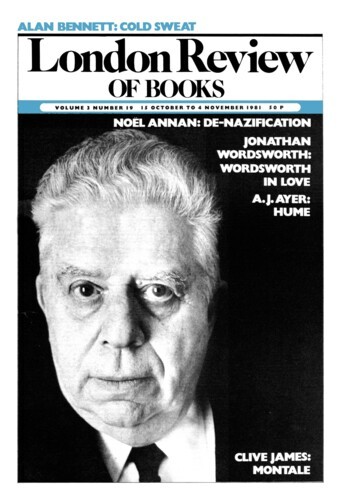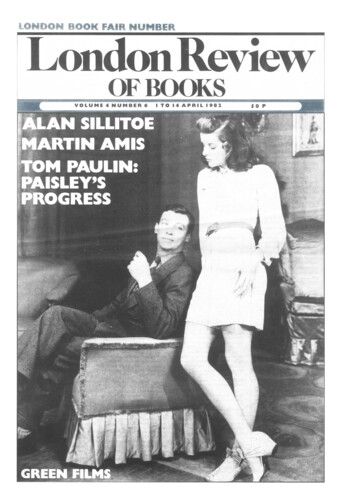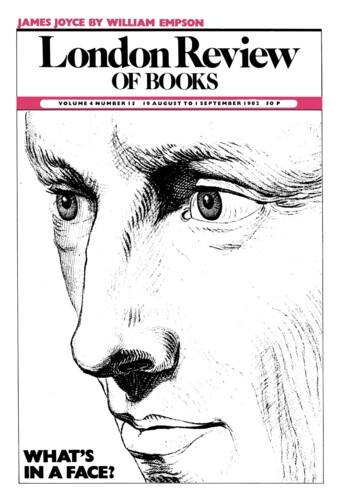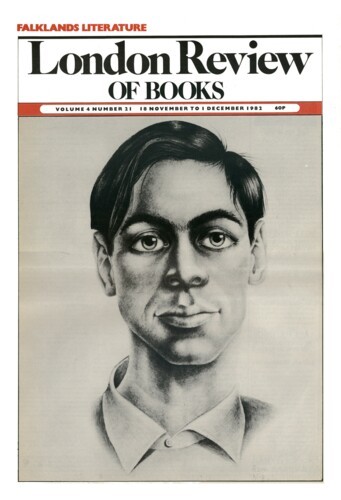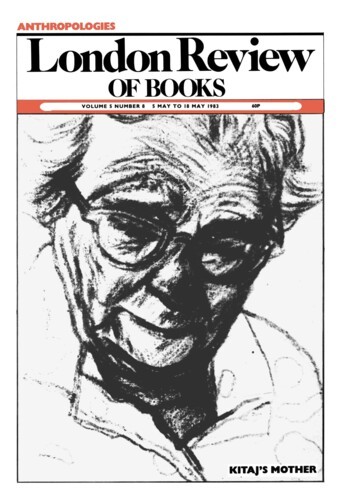Fools
P.N. Furbank, 15 October 1981
Ford Madox Ford has been lucky in his admirers, if ‘luck’ is the word. It is no small thing to have inspired two such magnificent poems as Lowell’s ‘Ford Madox Ford’ and William Carlos Williams’s ‘To Ford Madox Ford in Heaven’. And you may say that his luck holds: for Robert Green is also an admirer, but his book is thoroughly sensible, unbedazzled and discriminating, the book of someone who has heard of other writers and is in no kind of ‘Special relationship’ to Ford. What he has set out to do, and it is a wise economy, is to study Ford, not, as is customary, as literary craftsman and ‘Modernist’ fictional innovator, but as ‘a man who wrote at a particular point in time and in particular places’, and from the point of view of his response to ‘astonishingly rapid changes in European politics and culture’. Ford, that is to say, as a thinker.
